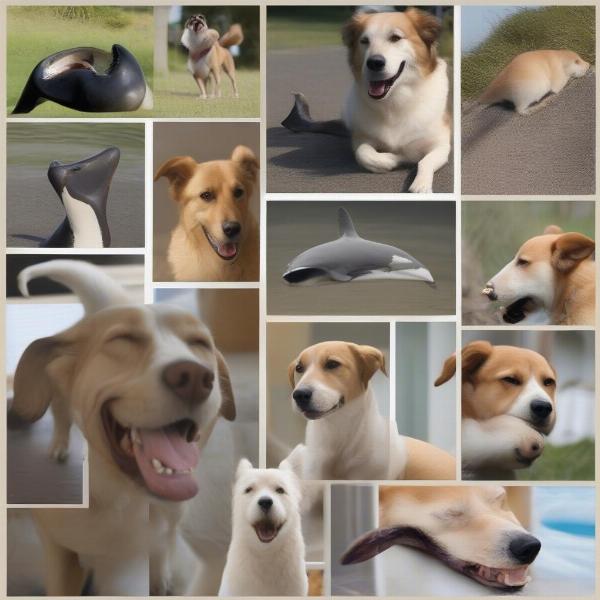The search term “deep throat dog cock” can be alarming and concerning within the context of a website dedicated to responsible dog care and well-being like ILM Dog. It’s important to address this query directly and redirect users searching for this phrase towards accurate information about canine health and responsible pet ownership. While this search term suggests a potentially harmful and inappropriate interaction with a dog, we will use this opportunity to educate users about proper canine care and address any underlying misconceptions.
Why Someone Might Search This Term
It’s difficult to ascertain the exact motivation behind this search term. It could stem from genuine curiosity, misinformation, or even malicious intent. Regardless of the reason, it’s crucial to intercept this search and offer resources that promote ethical treatment of animals.
Addressing Potential Misunderstandings
It’s possible that the user is misinformed about canine anatomy or sexual behavior. This search term may indicate a lack of understanding regarding appropriate interactions with dogs. We must emphasize that any sexual act involving a dog is harmful, unethical, and illegal.
The Importance of Respectful Interaction with Dogs
At ILM Dog, we believe in fostering a positive and respectful relationship between humans and dogs. This includes understanding their physical and emotional needs and ensuring their safety and well-being. It’s vital to treat dogs with kindness and respect, recognizing them as sentient beings capable of feeling pain and distress.
Recognizing Signs of Distress in Dogs
Learning to recognize signs of discomfort or distress in dogs is crucial for responsible pet ownership. These signs can include:
- Whimpering or whining
- Licking lips excessively
- Yawning
- Turning their head away
- Tucking their tail between their legs
- Showing the whites of their eyes (whale eye)
If a dog displays any of these signs, it’s important to stop the interaction immediately and give the dog space.
 Dog Showing Signs of Stress
Dog Showing Signs of Stress
Promoting Responsible Pet Ownership
Responsible pet ownership involves understanding a dog’s needs and providing proper care, including:
- Nutrition: Providing a balanced and nutritious diet.
- Exercise: Ensuring adequate physical activity and mental stimulation.
- Training: Using positive reinforcement methods to teach appropriate behavior.
- Veterinary Care: Regular check-ups and preventative care.
- Socialization: Exposing dogs to different environments and people.
Conclusion
While the search term “deep throat dog cock” raises serious concerns, it presents an opportunity to educate and redirect users toward responsible pet ownership. We must emphasize the importance of treating dogs with respect and understanding their needs. At ILM Dog, we are committed to providing accurate information and promoting the well-being of all dogs.
FAQ
- What should I do if I witness animal abuse? Immediately contact your local animal control or law enforcement.
- Where can I find resources on responsible dog ownership? Organizations like the ASPCA and the Humane Society offer valuable information.
- How can I learn more about canine behavior? Consult with a certified professional dog trainer or behaviorist.
- What are the legal ramifications of animal abuse? Animal abuse can result in fines, imprisonment, and other penalties depending on the jurisdiction.
- How can I help promote animal welfare? Support animal shelters and rescue organizations, advocate for animal rights, and educate others about responsible pet ownership.
About ILM Dog
ILM Dog (https://ilmdog.com) is your trusted international resource for all things dog-related. We provide expert advice on Breed Selection, Dog Health and Medical Care, Training and Behavior, Nutrition and Feeding, Grooming and Hygiene, and much more. Our mission is to empower dog owners worldwide with the knowledge and resources they need to provide the best possible care for their canine companions. For personalized advice and further assistance, please contact us at [email protected] or call us at +44 20-3965-8624.